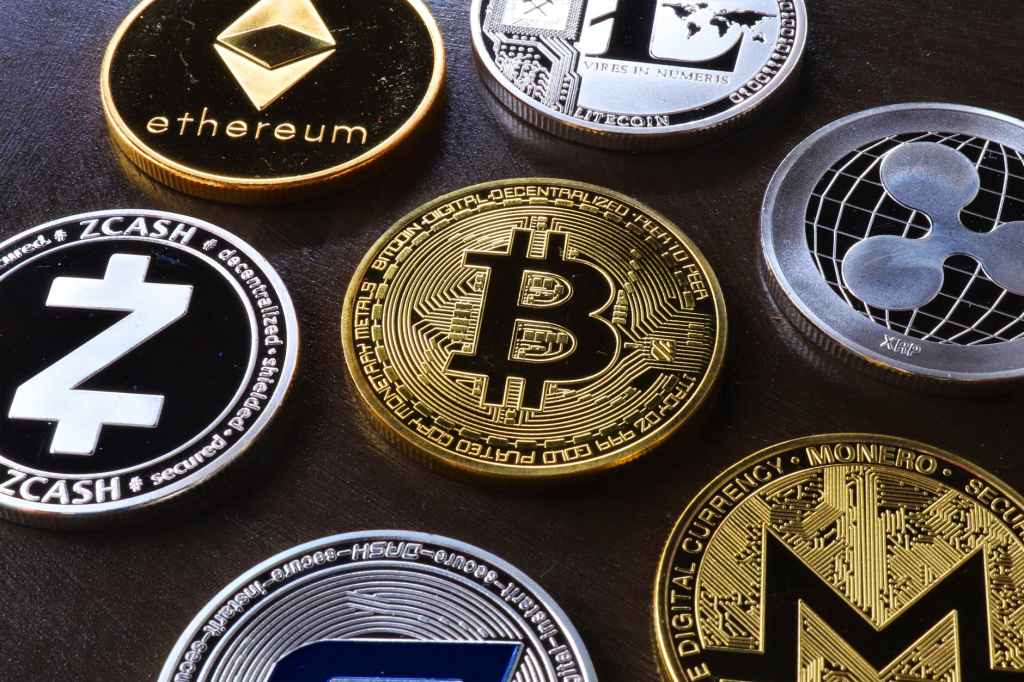BY PRIYA AGARWAL, FIFTH-YEAR STUDENT AT RMLNLU, LUCKNOW AND RIYA AGARWAL, FOURTH-YEAR STUDENT AT VIPS, IP UNIVERSITY, DELHI
Disruptive Technology is any innovation that changes the way how the industry and markets operate. Its attributes are comparatively superior and therefore can change consumer behavior and sweep away old practices. Television, Radio, and GPS, etc. were all disruptive technologies in their own time. Currently, the most talked about disruptive technology is ‘Blockchain’ which is often confused with Artificial Intelligence (‘AI’) but is quite different as AI delivers completely new services while Blockchain has the potential to revamp currently existing processes.
Blockchain, in simple terms, is a register or distributed ledger. It is an open-ended decentraliSed software platform enabling smart contracts and decentralised applications. “Each transaction is added to a chain of all previous transactions, validated by a network of computers”[i], before being added to the network, and thus creates a Blockchain. Two of its main characteristics are a decentraliSed way of tracking ownership of property, and the ability to directly transfer property. One of the most important products of blockchain technology is Cryptocurrency.
Cryptocurrency is a virtual or digital currency secured via cryptography and functions outside the control of any bank. It is a record of transactions (blockchains) kept on a decentralized database, which can be accessed by all members and is updated whenever another transaction is verified, which implies that choices influencing the database are made by an agreement of the users of that blockchain.[ii] It provides a certain level of pseudonymity as the members use a digital, blockchain wallet to send money and conduct their operations and every wallet is connected to a key and not to names and addresses.
Cryptocurrency in India
Cryptocurrency exchanges started to operate in India in a regulatory vacuum. There was neither a legislation defining it nor one prohibiting it. They grew and the RBI started taking measures to control its use without defining it. In June 2013, RBI through its Financial Stability Report defined Virtual Currency (‘VC’) as “A virtual currency can be defined as a type of unregulated, digital money, which is issued and usually controlled by its developers, and used and accepted among the members of a specific virtual community.”[iii]In 2013, RBI issued a caution to users dealing in cryptocurrency of the risks involved. In July 2017, the Inter-Disciplinary Committee advised against engaging in VCs and also insisted the government to take legislative measures. And finally, in April, 2018, RBI issued a circular prohibiting dealing in VCs to regulated entities. These regulated entities were instructed to quit the relationship within three months. This Circular was challenged in the case of Internet and Mobile Association of India v. Reserve Bank of India[iv].
The Petitioners made the following contentions:
1. the legal character of VCs i.e. it is not money but good,
2. it is a property as it is stable, definable, permanent and can be exclusively controlled;
3. the circular violates the rights of the petitioners under Article 19(1)(g) of the Constitution to carry on their occupation, trade or business;
4. the RBI has acted beyond the scope of its powers and arbitrarily;
5. the RBI acted in a predetermined manner and jumped the gun in virtually outlawing VCs.
The court found that while the RBI has the power to regulate VCs, the prohibition imposed is disproportionate; as it did not consider less intrusive measures and, therefore, ultravires the Constitution. In the absence of any legislative prohibition, dealing in these currencies must be treated as legitimate.
The verdict had a positive impact on the fintech landscape of the country but, various members of the legal community believe that this festive mood is going to be a short-lived affair if “Banning of Cryptocurrency and Regulation of Official Digital Currency Bill, 2019” is passed. However, in the absence of any regulation, the transactions and dealing with regards to cryptocurrency may witness many disputes.
Potential Disputes
One of the most innovative uses of cryptocurrency is using it for investment via Initial Coin Offering (‘ICO’). In an ICO, a company may issue coins in exchange for money or any other cryptocurrency. This coin may act as an equity share providing dividends and voting rights etc. These coins can also function as retailer loyalty programs providing specific products or services by the company. Similar to any venture involving investment put to risk, uncertainties regarding the allocation of risk or on the basis of which risk was assumed give rise to disputes.
For instance, during an ICO the issuing company may provide certain information to the investors including the prospectus and the offering memorandum. A possible breach of the terms of such a memorandum can give rise to a claim and therefore it is important to include logical dispute resolution mechanisms in such documents. In the Bancor Foundation ICO, the network congested due to high demand, moreover the offering was kept open longer than planned which enraged the early investors who claimed that the initial cap was exceeded and the value of the coins purchased before was depreciated.
Many disputes can arise out of the failure of the blockchain system itself. In 2016, the Ethereum cryptocurrency platform was hacked and cryptocurrency worth $64 million was siphoned off. Investors who experience the ill effects of similar disappointments in the blockchain fundamental to their cryptocurrency investments may normally wish to acquire damages from the platform provider.
There is also uncertainty whether these economic activities in this industry would be classified as an “investment”. To answer this, it may stated that such characterisation is possible under the broad ambit of “investment” provided in major investment treaties. Regulatory policies offered by the USA explains the complexity of the subject. The US has developed the required regulations for the treatment of these activities as an investment, however, the US Courts, in several cases, have treated cryptocurrencies as a form of money, while in India, the legality of cryptocurrency is not defined. while in countries like India, the courts and legislatures have remained largely silent on the legality of cryptocurrency.
An investor makes an investment based on several considerations such as risks and profits. In the case of cryptocurrencies, there are no geographical or other considerations to be made and the foreign country’s legislation seems to be the only decisive factor. Under the existing investment regime, laws of a state may be attractive or otherwise ‘inherently prospective’, defined in the case of Total S.A. v. Argentine Republic as a division between the specific investment laws of the state, which entail a certain legal expectation and the general regulatory framework, which is more difficult to be understood as to create such expectations. Anyhow, according to the decisions held in Enron v. Argentina[v] and CMS v. Argentina[vi], an investor can hold the state liable for breach of legitimate expectations in case of any amendment to laws that were an incentive for investment.
One of the major concerns for the cryptocurrency is the anonymity of transactions, which may justify the change in policy by the state. Central Banks and Financial Regulators all over the world discourage people to deal in cryptocurrency as it may be used in illegal activities like money laundry, tax evasion, terrorism, etc. Moreover, the governments also fear that it might undermine the value of the national currency as third party actors may be able to speculate the prices of goods and other crucial issues of sovereign nature.
Arbitration as a means of Resolving Cryptocurrency Disputes
Disputes arising from borderless currencies may be best served by a borderless form of dispute resolution and thus arbitration is the preferred means for resolution of blockchain-based disputes, given the international profile of ICO investors.
Arbitration is a non-national and neutral dispute resolution forum that enables the parties to nominate a tribunal or technical specialists to efficiently and effectively resolve the different types of disputes that may arise. The ease of cross border enforcement also makes it highly compatible with the transnational nature of technology and investors of the blockchain industry.
The award provided in arbitration is enforceable in 157 countries under the New York Convention. Moreover, it ensures flexibility to the parties as the parties can choose experts of the field and arbitral rules can be customised to suit the peculiarities of cryptocurrency disputes, while protecting the confidentiality of sensitive propriety information.
Indeed, the inherent flexibility of the arbitral proceeding enables efficient conflict management approaches to be developed. The flexibility of arbitration can also enable the parties to agree to an arbitration procedure which helps to head off the challenges that arise from the pseudonymity of users on the blockchain and the immutability of published ‘blocks’.
While uncertainty remains regarding the classification of crypto-based transactions as ‘investments’ under the existing investment arbitration regime, the regulation and ban by certain states mean that investment arbitration can be used as a viable option to resolve regulatory disputes.
Therefore, the arbitrators should promote the benefits of arbitration and its usage to the tech sector. Moreover, there is a scope to develop model arbitration clauses regarding cryptocurrency disputes and make modifications to institutional rules accommodate such disputes better.
Conclusion
Arbitration is well-placed to cater to a new breed of disputes, as long as its practitioners are prepared to evolve rapidly to meet their clients’ developing needs. New Dispute resolution procedures must be looked into like Online Dispute Resolution (‘ODR’), Blockchain arbitration etc. that are efficient and better at preserving the gains created through the use of blockchain even when a dispute arises. Blockchain technology is rapidly developing and is being adopted by several businesses and industries, therefore the interplay between blockchain and arbitration will grow and legal professionals and arbitrators must be well equipped in handling the forthcoming plethora of disputes.
[i] Reggie O’Shields, Smart Contracts: Legal Agreements for the Blockchain, 21 N.C. Banking Inst. 177 (2017).
[ii] James Rogers and Ayaz Ibrahimov, Cryptocurrencies and arbitration: A match made in heaven?, Norton Rose Fulbright International Arbitration Report, 25, 25 (May 2018), https://www.nortonrosefulbright.com/-/media/files/nrf/nrfweb/imported/20180416—pdf-file—interntional-arbitration-report—issue-10.pdf?la=en&revision=958b9eac-61b9-416d-8111-350583176022.
[iii] Financial Sector Regulation and Infrastructure, Reserve Bank of India, (Jun 23, 2013), https://www.rbi.org.in/scripts/PublicationReportDetails.aspx?UrlPage=&ID=709.
[iv] 2020 SCC Online SC 275.
[v] ICSID Case no. ARB/01/3, Award, 2007, paras. 264 – 268.
[vi] ICSID Case no. ARB/01/8, Award, 2005, para. 274.


Leave a comment